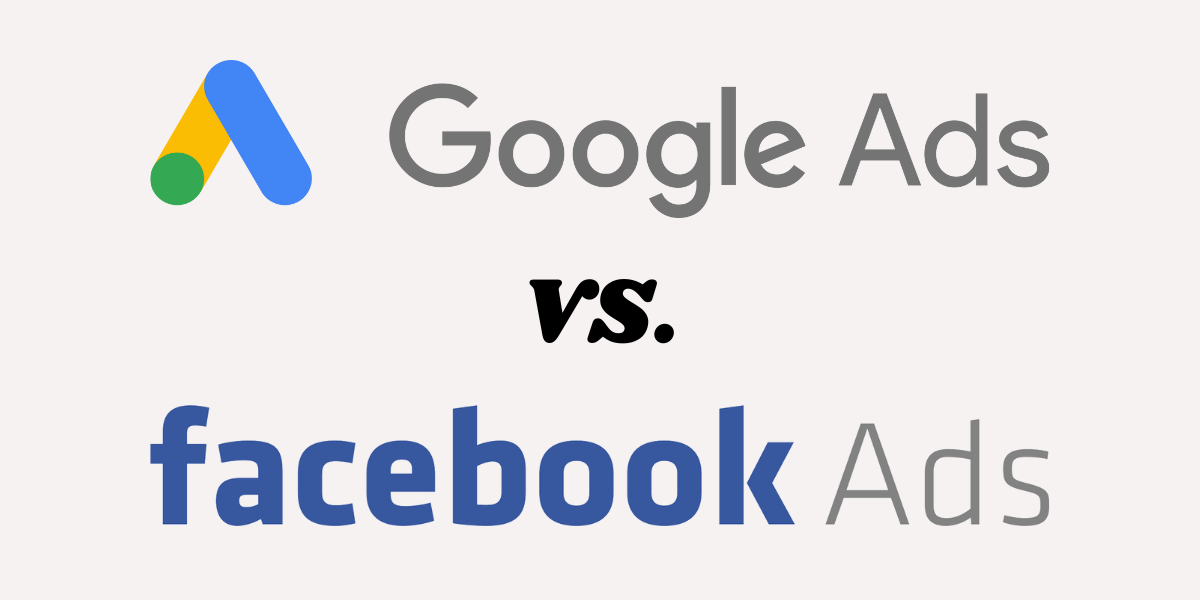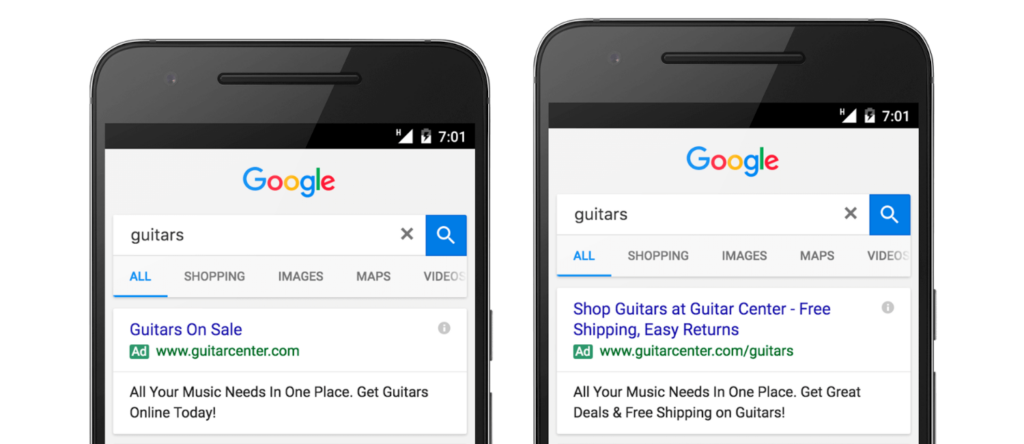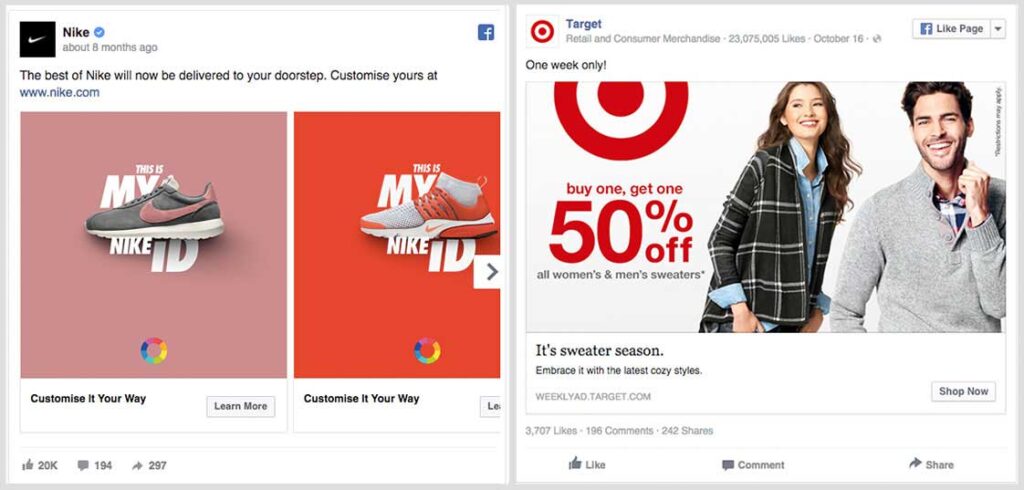Choosing the Right Advertising Platform for Your Small Business: Google Ads vs. Facebook Ads

In the rapidly evolving realm of digital marketing, small businesses often stand at a crucial crossroads, faced with the pivotal decision of where to strategically invest their advertising budget. In this era of endless possibilities, Google Ads and Facebook Ads emerge as titans in the digital advertising arena, each offering distinctive advantages tailored to different business needs. In this insightful exploration, we aim to dissect the strengths and unique propositions of both platforms, empowering small businesses to make well-informed decisions that align with their goals and target audience.
As the digital landscape becomes increasingly intricate, the importance of choosing the right advertising platform cannot be overstated. It’s not merely a matter of budget allocation but a strategic move that can significantly impact a small business’s visibility, reach, and ultimately, its success. One of the critical considerations in this decision-making process revolves around the cost implications of running campaigns on Google Ads and Facebook Ads.
Google Ads: Navigating the Pay-Per-Click Landscape
Google Ads operates on a pay-per-click (PPC) model, allowing businesses to exercise precise control over their budget. With PPC, advertisers only incur costs when users click on their ads, making it a cost-effective approach for small businesses. This model ensures that your budget is directly tied to the performance of your campaign, providing a transparent and measurable return on investment. Small businesses can set daily or monthly budgets, adjusting them as needed to accommodate fluctuations in demand or business priorities.
However, it’s essential to note that certain keywords in competitive industries may have higher bid prices, impacting the overall cost of running Google Ads campaigns. Strategic keyword selection and ongoing campaign optimization are crucial for maximizing the cost-effectiveness of Google Ads.

(https://chair10marketing.com/)
Facebook Ads: Navigating Social Engagement with Flexible Spending
In contrast, Facebook Ads offer a more flexible budgeting structure, allowing businesses to define their spending based on campaign objectives and audience targeting. While you can set a daily or lifetime budget for your campaigns, Facebook Ads operate on a bidding system where you compete with other advertisers for ad space. The cost of Facebook Ads is influenced by factors such as audience targeting, ad placement, and the overall competition within your target audience.
Moreover, Facebook Ads are well-suited for businesses aiming to build brand awareness and engage with their audience on a more personal level. Visual content, such as images and videos, plays a crucial role in capturing the attention of Facebook users, contributing to increased engagement and potentially reducing costs per engagement.
In the subsequent sections of this exploration, we’ll delve deeper into the nuances of both platforms, helping small businesses navigate the intricacies of cost management while maximizing the impact of their digital advertising efforts. Join us as we uncover the strategies that make Google Ads and Facebook Ads not just powerful tools but cost-effective solutions for small businesses aiming to thrive in the competitive digital landscape.

(https://ascend.com.ng/)
Google Ads: Capturing Intentful Searches
Google Ads, formerly known as Google AdWords, is a powerful advertising platform that revolves around intent-based searches. When users turn to Google, they often have a specific intent, whether it’s finding a product, service, or solution to a problem. Here’s why Google Ads might be the right choice for your small business:
1. Intent-Driven Audience
Reach users actively searching for products or services related to your business. This intent-driven audience is more likely to convert into customers.
2. Keyword Targeting
Precision is key with Google Ads. Target specific keywords related to your business, ensuring that your ads appear when users are most likely to engage.
3. Pay-Per-Click (PPC) Model
With Google Ads, you only pay when someone clicks on your ad. This cost-effective model allows for better budget control and ensures you’re paying for tangible results.
Facebook Ads: Building Relationships and Awareness
Facebook Ads, on the other hand, thrive on building relationships and creating brand awareness. As a social media giant, Facebook provides a different set of advantages for small businesses:
1. Demographic Targeting
Leverage Facebook’s extensive user data to target specific demographics. This is particularly useful for businesses with a clear understanding of their target audience.
2. Visual Appeal
Facebook is a visual platform, allowing businesses to showcase their products or services through compelling images and videos, enhancing engagement.
3. Brand Building
Use Facebook Ads to create a brand presence and connect with potential customers on a more personal level. Social engagement can contribute to long-term customer loyalty.
Choosing the Right Fit
While both Google Ads and Facebook Ads have their merits, the choice ultimately depends on your business goals, target audience, and the nature of your products or services. Consider the following factors when making your decision:

(https://signalssciences.com)
1. Objective
Identify whether you’re aiming for immediate conversions (Google Ads) or building brand awareness and relationships (Facebook Ads).
2. Target Audience
Understand your audience’s behavior. If they actively search for solutions, Google Ads may be more effective. If your audience spends time on social media, Facebook Ads could be the way to go.
3. Budget
Consider your budget constraints and the cost-effectiveness of each platform. Google Ads’ PPC model allows for precise budget control, while Facebook Ads can provide broader reach with flexible spending.
Conclusion
In today’s world of digital marketing, small businesses can benefit from the diverse strengths of Google Ads and Facebook Ads. By aligning your advertising strategy with your business goals and understanding your audience, you can make an informed decision that propels your small business to greater heights. Whether it’s capturing intentful searches or building lasting relationships, the key is to leverage the unique advantages each platform offers to maximize your advertising ROI.


